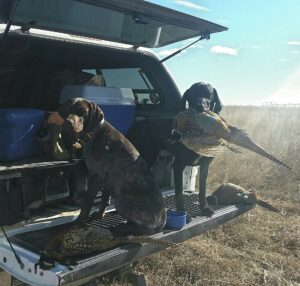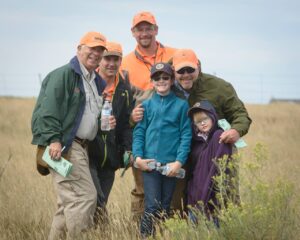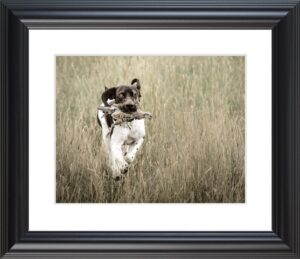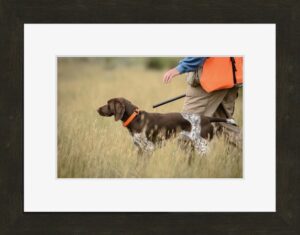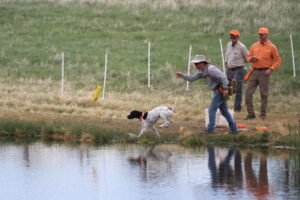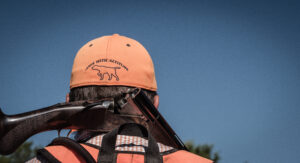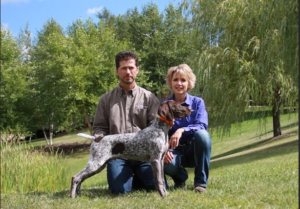Hello fellow RMCers!
I hope you’re having an active hunting season. This is what we train for all year. Rocco and Isa got some excellent ground time up in North Dakota with Craig’s Scarecrow pack and his friend Keith. Birds were pretty thin and thanks to some horrible shooting, my dogs probably got more work than they could have…
Believe it or not, it’s time to start thinking about 2019 – so I’m sharing this set of Chapter motions, which will be discussed and voted on at the NAVHDA 50th Annual Meeting Jan 24-27 in Minneapolis. Each chapter has the opportunity to appoint a delegate and record our vote; Craig has graciously volunteered. (If you’re planning to go, please let me know.)
The board will be voting on these at our annual meeting ( TBD in Jan), and we’d really like to hear your thoughts on these motions.
Following is a summary of the motions, read the full text on the Resources tab:
Proposed changes to Testing rules
- Require a 4 in search for a Utility Prize 1. Field search would be weighted the same as duck search. Submitted by Potomac, Keystone, Missouri & Oklahoma chapters
- Hold a public drawing/lottery the evening before the Invitational for field brace mate selection. The technology or software of choice for this drawing can be that of the NAVHDA office. Invitational handlers and the public shall be allowed to attend. An evening drawing will eliminate the perceived notion of handlers training together prior to the event. (It is unclear from the language whether the draw would precede each day, or be conducted the night prior to the first run day.)
Submitted by Potomac, Missouri & Chesapeake chapters
Other
- NAVHDA should commission new training book of current and best training practices, inclusive of the use of new training tools and techniques, authored by NAVHDA member subject matter experts. (Potomac chapter)
- 4. NAVHDA should disclose a copy of the new insurance policy. Additionally, NAVHDA will put together a plan to allow chapters to opt out of NAVHDA’s policy or being required to pay premium, provided proof of insurance listing NAVHDA International as an additional insured is provided annually. (Wisconsin chapter)
- 5. Every NAVHDA member should receive a free NAVHDA decal each year on renewal. (Northern Michigan chapter)
Also – stay tuned for news about RMC’s annual meeting. We’re expecting a pretty major turnover on the board, so we really want to see you there so you can vote on your new Chapter leadership. Please think about whether you ( or someone you know) would make a good candidate for one of the board positions.
To learn more about board positions, please visit our website at RMC-NAVHDA.com
Thanks and safe hunting!
Theo Stein

